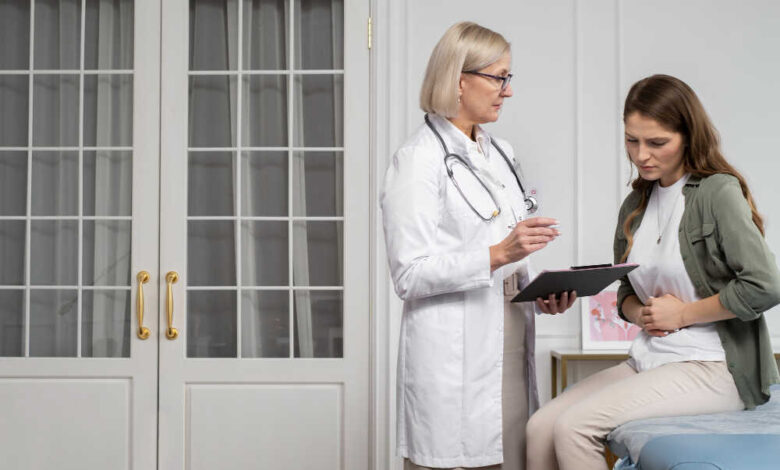Essential Gynecology Health Screenings Every Woman Should Schedule

Let’s face it—going to the doctor isn’t anyone’s idea of a fun time. But when it comes to staying healthy, scheduling your regular Gynecology health screenings is a must. These tests aren’t just about catching problems early; they’re about giving you peace of mind. Whether it’s preventing cervical cancer or ensuring your bones are strong enough to do that sunset yoga you love, these screenings are your best friend.
Why a Pap Smear Matters
Okay, so we’ve all heard of a Pap smear, but do you really know why it’s so important? This little test is a big deal when it comes to catching cervical cancer in its early stages. It’s super straightforward—just a quick swab of cells from your cervix. And trust us, those few minutes can make a huge difference. Start at age 21 and keep it up every three years. If you’re 30 or older, you might even stretch it to every five years with an HPV test in the mix.
The Role of HPV Testing
HPV might sound like just another acronym, but it’s way more significant. Human Papillomavirus can lead to cervical cancer, which makes HPV testing a lifesaver. Often done alongside your Pap smear, this test identifies risky HPV strains. If you’re 30 or older, pairing it with your Pap smear is a smart move. Detecting any high-risk HPV early means you can deal with it before it turns into something more serious.
Getting to Know Your Mammogram
Breast cancer doesn’t discriminate, and it’s one of the top cancers affecting women. Here’s where mammograms come in. These specialized X-rays can spot trouble before you even feel it. Generally, women begin yearly mammograms at age 40, but if your family history puts you at higher risk, you might need to start sooner. Catching breast cancer early means treatment is easier and often more effective.
Why You Need a Bone Density Test
Let’s talk bones. Osteoporosis might sound like something that happens to other people, but it’s a real risk, especially after menopause. A bone density test (or DEXA scan) measures how much calcium and other minerals are packed into your bones. This test is a game-changer for women over 65 and those younger with risk factors like family history. Knowing your bone density can help you take steps to strengthen them and avoid fractures.
Understanding Pelvic Exams
Pelvic exams are a crucial part of your Gynecology health routine. This hands-on exam lets your doctor check for any abnormalities in your uterus, ovaries, and other reproductive organs. Typically starting at age 21, pelvic exams are usually part of your annual check-up. They help in diagnosing conditions like ovarian cysts, fibroids, and even certain cancers early on. While the exam can feel a bit uncomfortable, it’s over quickly and is a vital step in maintaining your overall reproductive health.
The Importance of Cholesterol Screening
Cholesterol screening might not be the first thing on your gynecology checklist, but it’s an essential part of your overall health. High cholesterol can sneak up on you without any obvious symptoms, raising your risk for heart disease and stroke. This simple blood test measures your levels of LDL (bad cholesterol), HDL (good cholesterol), and triglycerides. Women should start regular cholesterol screenings at age 20, with follow-ups every four to six years, depending on individual risk factors. Staying on top of your cholesterol levels can help you make lifestyle changes or start treatments early, ensuring your heart stays in top shape.
The Lowdown on STD Screening
Sexually transmitted diseases can lead to serious issues like infertility and chronic pain if left unchecked. Regular STD screening is crucial, especially if you’re sexually active with multiple partners. Screenings for infections like chlamydia, gonorrhea, syphilis, and HIV are pretty straightforward. Catching and treating STDs early keeps you healthy and stops the spread of infections.
Don’t Skip That Pelvic Exam
Last but definitely not least, let’s chat about pelvic exams. This basic screening checks the health of your reproductive organs. It might seem routine, but it’s vital for spotting issues like ovarian cysts, infections, and fibroids early. An annual pelvic exam is recommended starting at age 21, or earlier if you’re sexually active or have reproductive health concerns. It’s a simple yet essential way to stay on top of your health.
Scheduling these screenings can feel like a chore, but think of it as investing in your future self. If you are unsure which screenings you need or have additional concerns, consider consulting with a health provider like FemmeWell? They offer comprehensive gynecology services and can help you figure out which screenings you need. Trust us, your body will thank you!





